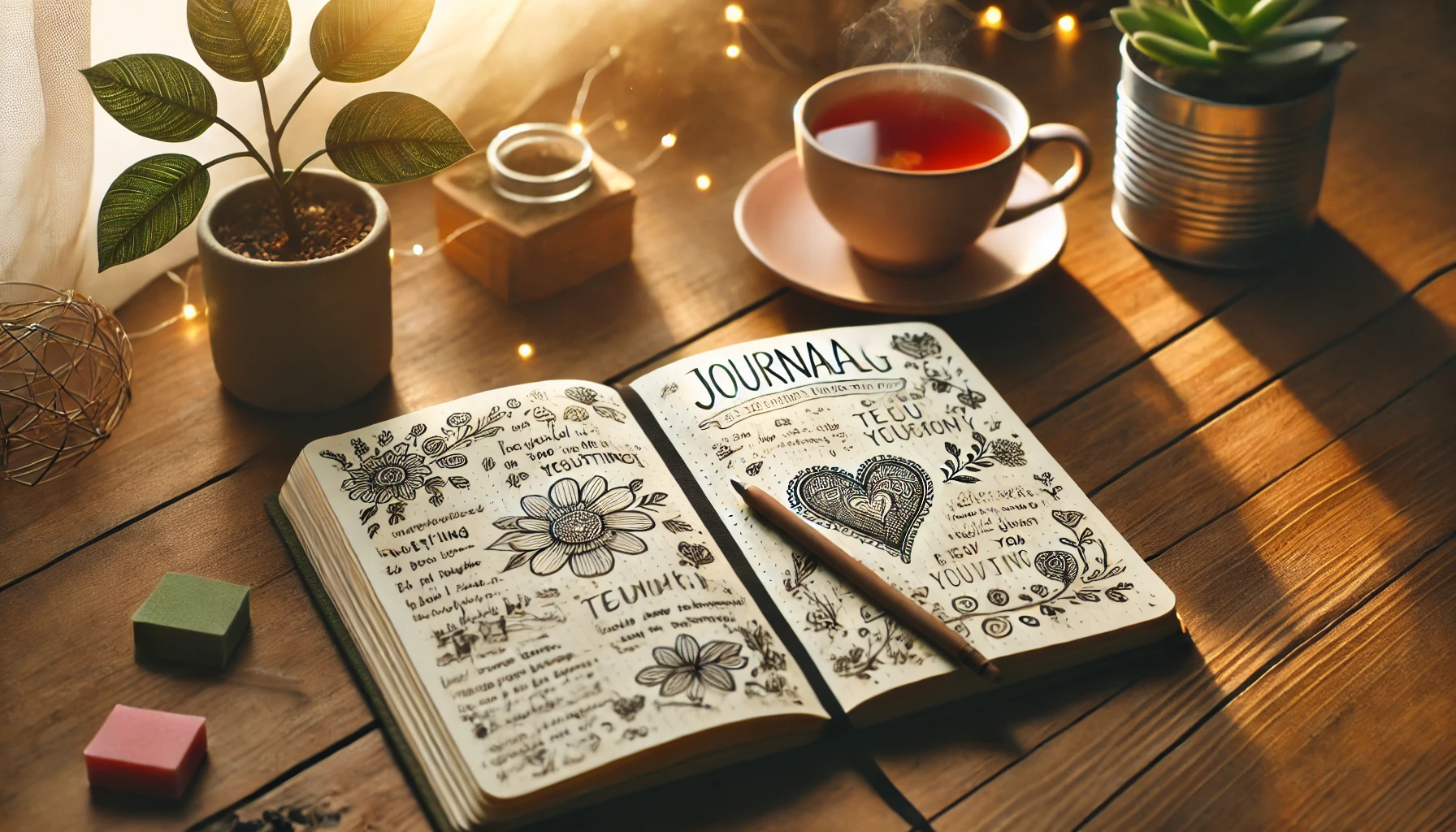Journaling is a simple yet powerful practice that can improve your mental clarity and emotional well-being. By putting your thoughts and feelings into words, you can gain insight into your emotions, reduce stress, and cultivate a greater sense of self-awareness.
Here’s why journaling is beneficial and how you can start incorporating it into your daily routine.
The Benefits of Journaling
1. Reduces Stress
Writing about your thoughts and experiences helps you process emotions and release pent-up stress. Journaling provides a safe space to express yourself without fear of judgment.
2. Enhances Self-Awareness
Regular journaling encourages self-reflection, helping you understand your thoughts, emotions, and behaviors more deeply.
3. Boosts Emotional Health
Journaling helps you identify patterns and triggers that affect your mood. By recognizing these, you can develop healthier coping strategies and improve emotional regulation.
4. Improves Mental Clarity
Organizing your thoughts on paper can make complex problems feel more manageable, allowing you to think more clearly and make better decisions.
5. Strengthens Creativity
Freewriting or exploring ideas in a journal can unlock creativity and inspire new perspectives.
6. Tracks Personal Growth
Looking back on past entries allows you to see how far you’ve come, reinforcing a sense of accomplishment and progress.
Types of Journaling
1. Gratitude Journaling
Focusing on gratitude helps shift your mindset from negativity to appreciation.
How to practice:
- Write down 3–5 things you’re grateful for each day.
- Reflect on why these things are meaningful to you.
2. Reflective Journaling
This involves writing about your day, thoughts, or emotions to gain deeper insight into your experiences.
What to include:
- Challenges you faced and how you handled them.
- Lessons learned from the day.
- Positive moments that brought you joy.
3. Goal-Oriented Journaling
Use your journal to set, track, and reflect on your goals.
How to get started:
- Define your short-term and long-term goals.
- Break them into actionable steps.
- Celebrate progress and reassess goals as needed.
4. Stream-of-Consciousness Writing
This involves writing whatever comes to mind without judgment or structure. It’s a great way to clear mental clutter.
Tips:
- Set a timer for 5–10 minutes.
- Write continuously, even if your thoughts seem random or unrelated.
5. Mood Tracking
Documenting your emotions can help you identify patterns and triggers that influence your mental health.
How to track moods:
- Use a simple scale (e.g., 1–10) to rate your mood each day.
- Note any events or circumstances that affected your emotions.
Tips for Successful Journaling
1. Set Aside Time
Choose a consistent time each day to journal, such as in the morning to set intentions or in the evening to reflect.
2. Create a Comfortable Space
Find a quiet, distraction-free area where you can focus on your writing.
3. Be Honest and Authentic
Write openly and honestly without worrying about grammar or structure. Your journal is a judgment-free zone.
4. Use Prompts for Inspiration
If you’re unsure what to write, use prompts to spark ideas. Examples include:
- What made you smile today?
- What’s a challenge you overcame recently?
- What’s something you’re looking forward to?
5. Keep It Private
Knowing your journal is for your eyes only allows you to write freely and honestly.
6. Experiment with Formats
Journaling doesn’t have to be limited to writing. Include drawings, collages, or mind maps to express yourself in different ways.
Final Thoughts
Journaling is a versatile and effective tool for improving mental clarity and emotional health. Whether you’re looking to reduce stress, enhance self-awareness, or track your personal growth, journaling provides a space for reflection and self-expression.
Start small by writing just a few sentences each day, and over time, you’ll discover the transformative power of this simple practice. Remember, there’s no right or wrong way to journal—just let your thoughts flow and enjoy the journey of self-discovery.
